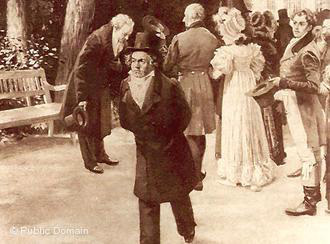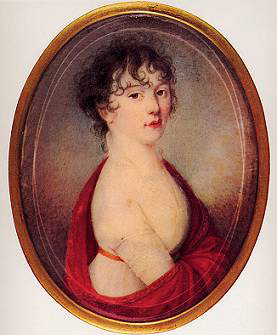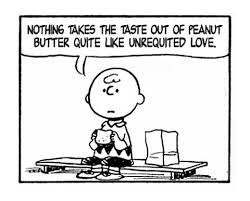Beethoven's birthday is December 16, and, on that day, when I think of Beethoven, I always think of Schroeder playing the Moonlight Sonata on his toy piano (a physical impossibility; toy pianos don't have enough octaves!).

Now, many of us remember Schroeder's tempestuous relationship with Lucy, he being the object of her doomed, unrequited infatuation.
Schroeder is so NOT interested.
For example, on one occasion, Lucy remarks to Schroeder "Beethoven wasn't so great." Irritated, Schroeder asks Lucy to explain her comment. Lucy replies, "You've never seen his face on a bubblegum card, have you?"
Face it, Lucy, you can't compete with Beethoven.
I'm not really getting a gay vibe, but is Schroeder perhaps behaving like a little gay elitist snob?
I think to understand Schroeder, you've got to understand Beethoven.

His idol, Beethoven, was certainly no elitist:
“His attitude to the princes and nobles who paid him was conveyed in a famous painting. The composer is shown in the course of a stroll with the poet Goethe, the Archduchess Rudolph and the Empress. While Goethe respectfully gave way to the royal pair, politely removing his hat, Beethoven completely ignored them and continued walking without even acknowledging the greetings of the imperial family.”
And he was also a “confirmed bachelor.”
Now, some critics have made out that Beethoven was some kind of repressed misognyistic homosexual who took out his frustrations on his adopted nephew Karl and Karl's mother, even though he displayed warm relationships with many women, such as Magdalena Willmann, Josephine Deym, Bettina Bretano.
He also suffered through several youthful infatuations with women. One of these was a countess who came to him for piano lessons. It didn't work out.

So, what does this have to do with Schroeder? Schroeder is mirroring Beethoven; Lucy wants to be his muse, but she isn't up to his standard. In Schroeder's case, no one is. Music is his lover, his god. Whether that's healthy or unhealthy in the long-term, who am I to judge?
In fact, unrequited love seems to be a major theme in Peanuts: Charlie Brown for the the little red-headed girl, Peppermint Patty and Marcie for Charlie Brown, Marcie for Peppermint Patty, maybe (that's the gay relationship in Peanuts, I think), Sally for Linus, Linus for Miss Othmar.

Only Schroeder seems immune to such earthly complexities. He gets to be horrified when he forgets Beethoven's birthday, but his sighs and tears are mostly sublimated in music.
And it's not like he's always behaves like a total snot to Lucy.
In reaction to her constant advances, Schroeder has been known to occasionally humor her, somewhat good-naturedly. He gave her a Valentine after confirming that he didn't have to love her to give her one, just "barely being able to tolerate her" was fine.
Schroeder demonstrates the same fondly teasing tone toward Lucy in the December 14, 1975 Sunday strip, whispering a flirtatious comments to her while she pretends to be asleep on his piano.
He addresses her as "pretty girl", and says "I think you're kind of cute! You really fascinate me!" He ends his string of flirtatious remarks with "I guess I love everything about you... Sweet baby!" Lucy cannot help but grin, to which Schroeder exclaims, "Ha! I knew you weren't asleep!" Lucy responds with "Rats!"
So, is the eternally prepubescent Schroeder gay? The jury is still out on that one, but I think he's more “queer” than gay, using the definition of “queer” as nonconforming or eccentric. I also think he kind of fits in with the Oscar Wilde-like late nineteenth century aesthete, living for art, and art alone, or, closer to Beethoven, a Romantic artistic antihero loner type.
I remember in the movie You're A Good Man, Charlie Brown there's a dreamily beautiful sequence of Schroeder playing Beethoven, and he seems to morph into his idol.
Note the combination of churches from Beethoven's time period and psychedelic imagery like flowers and dancing flames.
That's the essence of Schroeder. He dreams, but for him, the dream is real. And come to think of it how many of us are that in tune with our own “queer” dreams that won't allow themselves to be scaled down to a picture on Lucy's bubblegum card or an app on a smartphone?



 Join our Email List
Join our Email List Like Us on Facebook
Like Us on Facebook Instagram
Instagram Youtube
Youtube Follow Us on Twitter
Follow Us on Twitter Follow us on Pinterest
Follow us on Pinterest